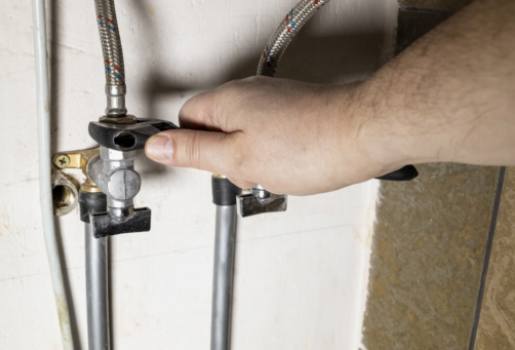The Ultimate Guide to DIY Drain Maintenance for a Healthy Home
22 March 2025 by Zuzanna H.Keeping your home’s drains in good working condition is essential for maintaining a healthy and efficient living environment. Regular drain maintenance not only prevents clogs and backups but also ensures the longevity of your plumbing system. With the right knowledge and techniques, you can easily tackle common drain problems and keep your drains running smoothly. In this ultimate guide to DIY drain maintenance, we will explore preventive measures, natural solutions for cleaning, dealing with common drain problems, tools and techniques for maintenance, when to call in the experts, and ensuring long-term drain health and efficiency. So, let’s delve into the world of drain maintenance and learn how to keep your home’s drains clog-free and in excellent working condition.

Understanding the Basics of Drain Maintenance
Proper drain maintenance can prevent costly clogs and backups, as well as promote a healthy living environment. In order to effectively maintain the drains in your home, it's important to understand the basics of drain maintenance. This includes knowing how your drains work, what causes clogs, and how to prevent common drain issues. Drains are responsible for carrying wastewater away from sinks, showers, toilets, and appliances, and into the sewer system or septic tank. Over time, debris such as hair, soap scum, food particles, and grease can build up in the drains, leading to clogs and slow drainage. Additionally, mineral deposits and tree roots can cause obstructions in the drain pipes, further complicating the issue. Understanding these common causes of drain problems is the first step in effective drain maintenance. Preventive measures such as using drain strainers to catch debris, avoiding pouring grease down the drain, and being mindful of what goes down the garbage disposal can go a long way in preventing clogs and backups. Regular maintenance, such as flushing drains with hot water or a mixture of vinegar and baking soda, can also help to keep drains flowing smoothly. Furthermore, being aware of signs of potential drain issues, such as foul odors or gurgling noises, can help you address problems before they escalate. By understanding the basics of drain maintenance, homeowners can take proactive measures to keep their drains healthy and prevent common plumbing issues. This not only saves money on costly repairs but also ensures a healthy and efficient home environment.Preventive Measures for Clog-Free Drains
By being proactive in your approach to drain maintenance, you can reduce the likelihood of experiencing slow drains or complete blockages. Simple habits such as using drain strainers to catch debris, avoiding pouring grease or oil down the drain, and being mindful of what you flush down the toilet can go a long way in preventing clogs. Additionally, regular hot water flushes and vinegar and baking soda treatments can help to keep your drains clean and clog-free. By taking these preventive measures, you can save yourself the hassle of dealing with clogged drains in the future.Natural Solutions for Regular Drain Cleaning
While there are many commercial drain cleaners available, natural solutions can be just as effective without the use of harsh chemicals. One of the most common natural remedies for regular drain cleaning is a mixture of baking soda and vinegar. This combination can help break down buildup and odors in your drains. Simply pour a cup of baking soda followed by a cup of vinegar down the drain, and let it sit for about 30 minutes before flushing with hot water. Another natural solution for regular drain cleaning is using salt and hot water. Pouring a mixture of hot water and salt down the drain can help dissolve grease and fat that may be clogging the pipes. Additionally, regularly using boiling water to flush drains can help prevent the buildup of debris and keep them clear and odor-free. For a more pleasant-smelling solution, consider using citrus fruits. Lemons and oranges can be cut into small pieces and ground in a garbage disposal to freshen up the drain and eliminate unpleasant odors. Regularly using these natural solutions for drain cleaning can help prevent clogs and keep your drains running smoothly without the need for harsh chemicals.Dealing with Common Drain Problems at Home
However, it's not uncommon to encounter some common drain problems from time to time. Here are some common drain issues and how to address them:1. Slow Draining: If you notice that water is draining slowly from your sink, shower, or bathtub, it could be a sign of a clog. You can try using a plunger or a drain snake to clear the obstruction. Alternatively, a mixture of baking soda and vinegar followed by hot water can help break down the clog and clear the drain.
2. Foul Odors: Unpleasant odors coming from your drains are often caused by a buildup of food, grease, or other organic materials. A combination of hot water, baking soda, and vinegar can help eliminate these odors and keep your drains smelling fresh. You can also try using a drain strainer to prevent food scraps and debris from clogging the drain in the first place.
3. Gurgling Sounds: The presence of gurgling or bubbling sounds from your drains could indicate a blockage or a venting issue. This may require more advanced techniques such as using a plumbing snake or removing the trap to access and remove the blockage.
4. Water Backing Up: If you experience water backup in your sinks, tubs, or toilets, it could be due to a more serious clog further down the drain line. In these cases, it may be necessary to use a drain auger or seek professional help to clear the obstruction. By addressing these common drain problems promptly and effectively, you can prevent more serious issues from arising and keep your home's plumbing system running smoothly. Regular maintenance and natural cleaning solutions can help prevent these problems from occurring in the first place, ensuring a healthy and efficient home environment.